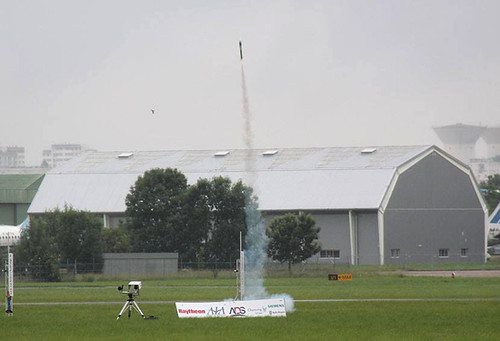This post is part of the Science Tuesday feature series on the USDA blog. Check back each week as we showcase stories and news from USDA’s rich science and research portfolio.
Most people don’t equate aviation with agriculture, but two USDA partners, Washington State University (WSU) and members of a Texas 4-H Club, received the chance to participate in the 2013 Paris Air Show, which was held June 17-23.
In 2010, USDA’s National Institute of Food and Agriculture awarded WSU with a $40 million grant to develop effective alternative biofuels for commercial and military jets. The project, the Northwest Advanced Renewables Alliance (NARA), is working to convert closed timber mills into bioenergy development centers, which will improve the economic potential of rural communities affected by the downturn in timber production. The team is focusing on feedstock development, sustainable forest production and establishing new methods to identify the most promising plant lines for biofuel conversion. NARA aims to develop a regional source of renewable aviation fuel for Seattle-Tacoma International Airport.
WSU’s exhibit was located in the Alternative Aviation Fuels Pavilion at the show, in which they demonstrated alternative fuels produced using materials from forest residuals from Douglas-fir and other western species. Starting early next year airlines, such as United, are expected to start using advanced biofuels, which will cut greenhouse gas emissions in half.
A 4-H rocketry team from Georgetown, Texas, also shared the spotlight at the show. In May of this year, three teenagers from the 4-H club won first place over more than 700 participants in the National Rocketry Contest, giving them the opportunity to represent the United States in the International Rocketry Competition in Paris. Team USA defeated Russia and France by sending a raw egg soaring 703 feet over Paris, landing intact with a parachute attached. The egg’s flight time was 49.18 seconds, within the competition’s target of 48 to 50 seconds. After coming in first place, the three teens met with French President Francois Hollande and received medals and a crystal trophy from the show’s organizers.
The Paris Air Show is the world’s largest and oldest air show, with 150,000 representatives from the aviation industry attending – from aircraft manufactures to airline operators. Representatives from the aviation industry came to the air show to present their latest technological innovations and attract potential customers.

